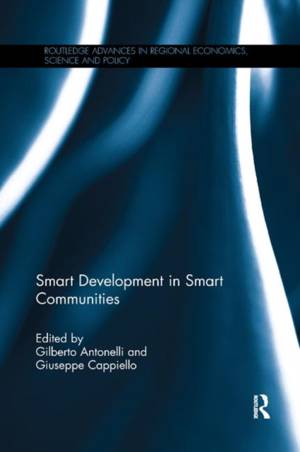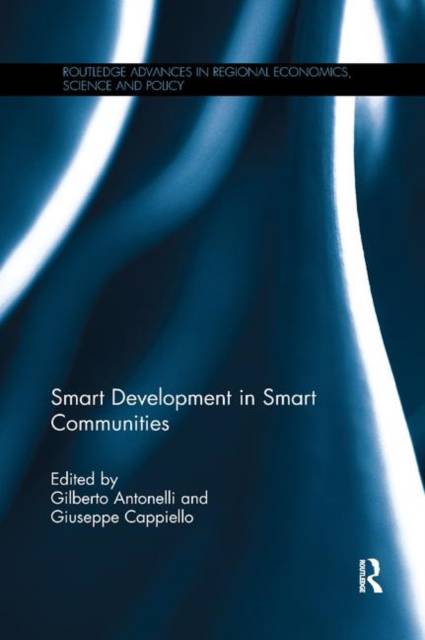
- Retrait gratuit dans votre magasin Club
- 7.000.000 titres dans notre catalogue
- Payer en toute sécurité
- Toujours un magasin près de chez vous
- Retrait gratuit dans votre magasin Club
- 7.000.0000 titres dans notre catalogue
- Payer en toute sécurité
- Toujours un magasin près de chez vous
Smart Development in Smart Communities
Description
The concept of smart cities has become one of the most significant new lines of thinking to emerge in the social sciences in recent years, both from the research and policy angles. To date, the focus in smart specialization has been on what regions as a whole can do to bring about innovation, but it hasn't necessarily addressed the role cities play within the field. This book aims to address that gap, drawing together a team of leading contributors, to illustrate this process with particular focus on cities.
Smart Development in Smart Communities discusses the cross-fertilization between smart specialization and cities in fostering smart development and its interactions with the macro-, micro- and meso-economic framework, from both a theoretical and applied perspective. Specific topics covered by the book include: human capital formation and utilization; centralized/decentralized industrial policies; innovation policies; collective learning; and the role of public utilities in sustaining smart development processes.
This book tackles some of the most important questions that must be faced when investigating how structural change and innovation processes are shaping local and global economic development. It will be of interest to academics and researchers in the area of Development Economics, Urban Studies and Public Management.
Spécifications
Parties prenantes
- Editeur:
Contenu
- Nombre de pages :
- 348
- Langue:
- Anglais
- Collection :
Caractéristiques
- EAN:
- 9780367874605
- Date de parution :
- 12-12-19
- Format:
- Livre broché
- Format numérique:
- Trade paperback (VS)
- Dimensions :
- 156 mm x 233 mm
- Poids :
- 639 g

Les avis
Nous publions uniquement les avis qui respectent les conditions requises. Consultez nos conditions pour les avis.





